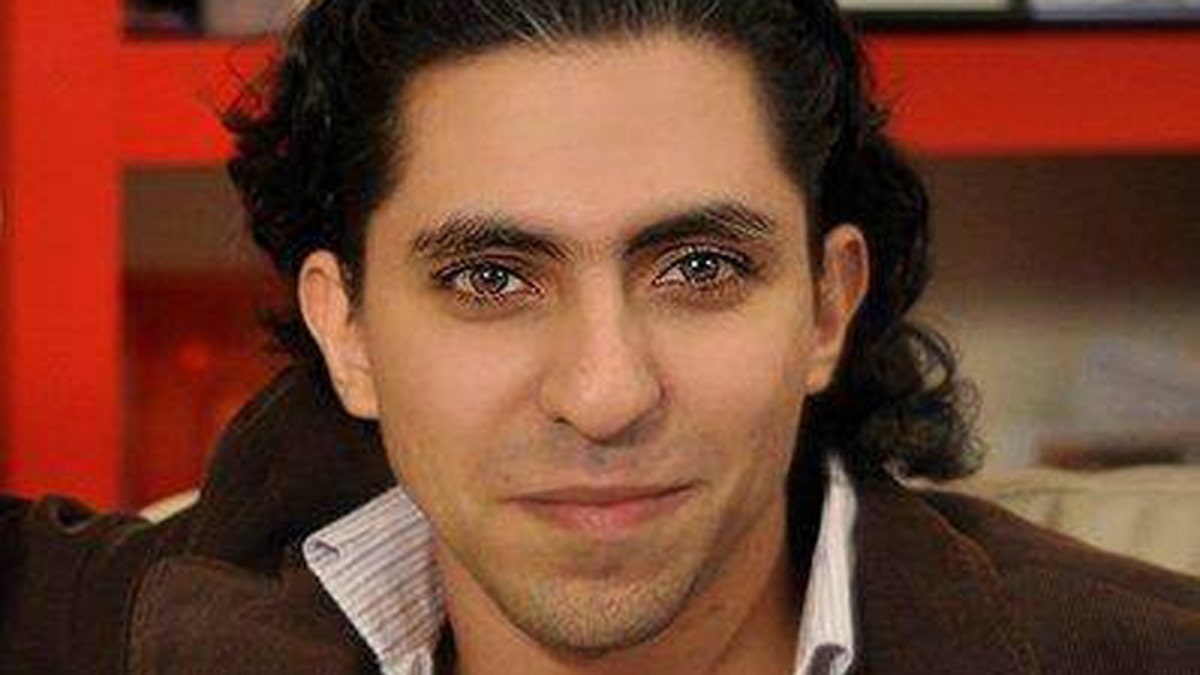
Raif Badawi, a Saudi website founder and blogger. Badawi-- who was sentenced to 1,000 lashes and 10 years in prison for criticizing Islam-- may now face the death penalty. (© Private)
The Saudi Arabian blogger sentenced to 1,000 lashes and 10 years in prison for criticizing Islam may now face the death penalty.
Raif Badawi, 31, has been in a Saudi prison since last May after criticizing Saudi Arabia's powerful clerics on his liberal blog. His case has received international attention after he was flogged in a public square 50 times and scheduled to receive 50 lashes each week for 20 weeks.
But pressure from human rights groups and many Western governments may have influenced the Saudis to postpone the lashes, as he has only been flogged once since receiving his sentence.
Badawi’s wife, Ensaf Haidar, told London’s The Independent newspaper that the judges in Saudi Arabia’s criminal court now want him to undergo a re-trial for apostasy. If found guilty, he would be sentenced to death.
The “dangerous information” had come from “official sources” inside the kingdom, Haidar said in a series of messages.
Badawi was arrested in 2012, but in 2013 a judge threw out the charge of apostasy against him after he persuaded the court that he was a Muslim. The evidence used against him during his trial included the fact that he pressed the “Like” button on a Facebook page for Arab Christians.
In addition to his sentence, Badawi was ordered to pay a fine of 1 million riyals ($266,000).
Following his arrest, his wife and children fled the kingdom for Canada. His family and supporters had hoped that international pressure would prompt Saudia Arabia to reduce his sentence.
The U.N. high commissioner for human rights, Zeid Raad al-Hussein, said in a January statement that flogging is "at the very least, a form of cruel and inhuman punishment" prohibited under international human rights law. He appealed to the king to halt the public flogging by pardoning Badawi "and to urgently review this type of extraordinarily harsh penalty."
The U.S. made a rare diplomatic decision to publicly call on Saudi Arabia, an important U.S. ally, to rescind the sentencing, with U.S. State Department spokeswoman Jen Psaki urging Saudi authorities to "cancel this brutal punishment."
“The United States strongly opposes laws, including apostasy laws, that restrict the exercise of these freedoms, and urges all countries to uphold these rights in practice,” Psaki said in January.
Saudi Arabia enforces a strict version of Islamic law and does not tolerate political dissent. It has some of the highest social media usage rates in the region, and has cracked down on domestic online criticism, imposing harsh punishments.
Amnesty has an online petition calling for Badawi's release. Johnson also urged Americans to contact their representatives in Congress, as well as the White House, to press the U.S. government to demand Badawi's freedom.
The Associated Press contributed to this report.
